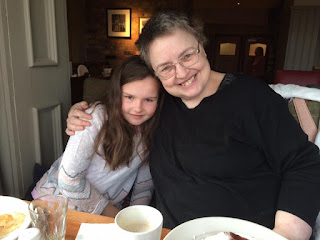In Praise of the Happy Ending
Yet nowhere are happy endings more vilified than in
romantic fiction. A fellow romance writer recently linked to a review of her
novel, which, quite apart from suggesting my colleague was ‘frittering’ away
her talents writing romance (talk about damning with faint praise!), also
dismissed happy endings in romance, as ‘boring as hell’ (I won’t link to the
review as I suspect there’s some subtle trolling going on).
As many other romance writers pointed out, no one
complains when Poirot gets the killer the end of an Agatha Christie novel. Okay,
someone is dead, and others have probably died too. But for the purposes of the
sleuth having solved the riddle, it is, to all intents and purposes, a happy
ending. The bad guy/girl is punished and the worthy get their reward (usually
the fortune left by the deceased).
At the end of a Jack Reacher novel, when he’s beaten
up and/or killed all the bad guys and moved on, it’s a happy ending. Reacher is
back where he wants to be, on the road, and he has left good people safe. Yet
no one makes sniffy comments about Lee Child novels.
In films, time and time again, there is a ‘happy’
resolution at the end, because we mostly want to see that justice has been
served. John McClane defeats the terrorists and gets back with his wife in time
for Christmas – or later is reunited with his children. The rebel forces defeat
Darth Vader’s Stormtroopers and blow up the Death Star. The scientists, or sexy
men on motorbikes, escape the dinosaurs in Jurassic Park. George Bailey
realises that his life is indeed wonderful.
Time and time again, romance is singled out for
criticism, and usually by people who admit they don’t usually read it. They
mock the idea of a happy ending, completely missing the fact that this is what
the readers want. Whatever crap is going on in their own lives, for a few hours
they can lose themselves in a world where everything works out okay in the end.
They (we) are under no illusion that real life is in any way like this. But for
a few hours, we can pretend it is. In just the same way as James Bond fans
pretend they’re really in a spy story, western fans can pretend they’re riding the
range, and Middle Earth fans can imagine they’re helping the Hobbits to rid the
world of Sauron. But for some reason, because we’re (predominantly) women,
questions are raised as to whether such fantasies are good for us. Hell yes!
Why not? We’re not the idiots that some people make us out to be. Also, just
because someone enjoys reading romance, that doesn’t mean it’s the only genre
they ever read. I read romance, crime, horror, non-fiction, historical, science
fiction, YA, the back of the cornflake packet…
I write for a market, DC Thomson Pocket Novels, which
is resolutely hopeful and slightly rose-coloured, and do you know what? I love
it. Not least because I also have crap going on in my life. I don’t just get to
lose myself in a story. I can create my own story and make a world where others
can escape from their problems for a while.
I’m under no illusions that my stories change peoples’
lives. I just hope that, at least for a couple of hours, I can help someone
escape from anything bad that’s happening to them. It’s the best any author can
hope, no matter what they’re writing.
Meanwhile, leave our happy endings alone. If they’re
not your thing, fine, but don’t criticise anyone else’s right to lap up as many
happy endings as they want. There’s enough horrible stuff going on in the real
world and we’re all acutely aware of that. It’s because of the horrible stuff
that, more than ever, we need happy endings.

Excellent post, Sally! Most people want novels to have 'satisfying outcomes' - whatever the genre.
ReplyDeleteGreat post, Sally.
ReplyDeleteThanks Paula. There was a lot about the review that I could have picked apart, but the bit about happy endings really got to me. What's wrong with leaving someone feeling good?
ReplyDeleteA novel needs a resolution - and what that is depends on the genre. Whodunnits need to reveal, well, who dunnit. Mysteries need to be solved. Romances need to find true love. A reader would feel cheated if this didn't happen.
ReplyDeleteAbsolutely. There's far too much misery in the world as it is.
ReplyDeleteThanks for hitting the nail on the head, Sally. People pick up their preferred genre, whatever that may be, because they know what to expect from it. Romance readers (and writers) get criticism for many things, but leave our happy endings alone!
ReplyDeleteWell said, Sally! Hear hear!
ReplyDeleteYes, hooray for happy endings! One of the functions of reading is to allow us to escape from our own world for a while, and there are most definitely times we need to go to a happier, safer place.
ReplyDeleteGood post, Sally.
ReplyDeleteIf you want unhappy endings, read Thomas Hardy. The rest of us like a bit of escapism or for the villains to get their comeuppance after a nerve-shattering story. Long live happy endings.
Excellent post and I can only agree with the other comments. You made some very valid points, most films and books have an ending that will please the watcher or reader. No one wants to read a book with an unsatisfactory ending, whatever the genre.
ReplyDelete